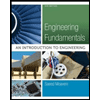
Structural Analysis
6th Edition
ISBN: 9781337630931
Author: KASSIMALI, Aslam.
Publisher: Cengage,
expand_more
expand_more
format_list_bulleted
Concept explainers
Question
Chapter B, Problem 2P
To determine
Find the matrix
Expert Solution & Answer
Want to see the full answer?
Check out a sample textbook solution
Students have asked these similar questions
a) For the truss shown in Fig 2, determine the stiffness matrices of elements 2, 3 and 4 in the in the global co-ordinate system. Assume for each member A = 0.0015 m2 and E = 200 GPa. Indicate the degrees-of freedom in all the stiffness matrices.
b) Determine the stiffness matrix of the whole truss in the global co-ordinate system. Clearly indicate the degrees-of freedom numbers in the stiffness matrix.
c) Calculate all the nodal displacements and all the member forces of the truss.
I want an answer very quickly, please
I want an answer very quickly, please
Knowledge Booster
Learn more about
Need a deep-dive on the concept behind this application? Look no further. Learn more about this topic, civil-engineering and related others by exploring similar questions and additional content below.Similar questions
- Q1/ Choose the correct answer for the following: 1- Cantilever retaining walls is suitable for retaining backfill about a- 8m d-4m b- 12m c- 2m e- Any height 2-The shear key is provided to a- Avoid friction behind the wall d- All of the above b- Improve appearance e- None of the above c- Increase passive resistance types of retaining wall may b- Semi-gravity retaining walls d-Counterfort retaining walls be classified as follows: 3- The common a- Gravity retaining walls walls c- Cantilever retaining e- All the mentioned 4-Related to Stability of RW, Which of the following does not represent a potential failure mode for a retaining wall? a-Bearing capacity failure of the foundation soil. b- Wall cracking due to thermal expansion. c- Excessive settlement due to weak soil layer. d- Shear failure within the foundation soil adjacent to the wall. e-Sliding along the base due to insufficient friction. 5- If the desired factor of safety against sliding is not met, which strategy is NOT a…arrow_forwardI want an answer very quickly, pleasearrow_forwardI need a solution quickly, pleasearrow_forward
- I need a solution quickly, pleasearrow_forwardFor the truss shown in Fig 2, determine the nodal displacement and member forces using the stifness method for all elements of the truss. Assume for each member A = 0.0015 m2 and E = 200 GPa please show all workingarrow_forwardTwo W14x38 tension members are connected with a splice connection using plates attached atthe top and the bottom flanges. The design axial load Pu is 320 kips. The bolts are made of A325X, and thebolt diameter is ½ inch. (Slip-Critical connection)( LRFD units)( Previous Solution was incomplete/incorrect)arrow_forward
- A tension member made of L4x4x1/2 is connected to gusset plate with welds. Using E70electrode and ½ inch weld size, design the balanced weld lengths.( Use AISC manual, LRFD units)(Previous solution was incorrect)arrow_forwardTwo W14x38 tension members are connected with a splice connection using plates attached atthe top and the bottom flanges. The design axial load Pu is 320 kips. The bolts are made of A325X, and thebolt diameter is ½ inch. (Slip-Critical connection)( LRFD units)arrow_forwardA tension member made of L4x4x1/2 is connected to gusset plate with welds. Using E70electrode and ½ inch weld size, design the balanced weld lengths.( Use AISC manual, LRFD units)arrow_forward
- = A steel pile (H-section; HP 310 x 125; and so A, 15.9 x 10-3 m² ) is driven into a layer of sandstone. The length of the pile is 25 m. Following are the properties of the sandstone: unconfined compression strength = qu(lab) = 78 MN/m² and angle of friction = 36°. Using a factor of safety of 3, estimate the allowable point load that can be carried by the pile. Use [qu(d Qu(lab). qu(design) b)/5]. (Enter your answer to three significant figures.) Qp(all) kNarrow_forwardСи A concrete pile 20 m long having a cross section of 0.25 m x 0.25 m is fully embedded in a saturated clay layer. For the clay, given: Ysat = 18 kN/m³, = 0, and c₁ = 80 kN/m². Determine the allowable load that the pile can carry (FS-3). Use the A method to estimate the skin resistance. For L = 20 m, A = 0.173. (Enter your answer to three significant figures.) Qall kNarrow_forwardA concrete pile 65 ft long having a cross section of 15 in. × 15 in. is fully embedded in a saturated clay layer for which Ysat = can carry. (Let FS = 3.) Use the a method equation QsfpAL = ac₂pAL and the following table to estimate the skin friction and Vesic's method for point load estimation. Си α Pa ≤ 0.1 1.00 0.2 0.3 0.92 0.82 0.4 0.74 0.6 0.62 0.8 0.54 1.0 0.48 1.2 0.42 1.4 0.40 1.6 0.38 1.8 0.36 2.0 0.35 2.4 0.34 2.8 0.34 Note: atmospheric pressure pa ≈ 100 kN/m² or 2000 lb/ft². (Enter your answer to three significant figures.) Qall = kip 121 lb/ft³, = 0, and Cu = 1600 lb/ft². Determine the allowable load that the pilearrow_forward
arrow_back_ios
SEE MORE QUESTIONS
arrow_forward_ios
Recommended textbooks for you

 Engineering Fundamentals: An Introduction to Engi...Civil EngineeringISBN:9781305084766Author:Saeed MoaveniPublisher:Cengage Learning
Engineering Fundamentals: An Introduction to Engi...Civil EngineeringISBN:9781305084766Author:Saeed MoaveniPublisher:Cengage Learning


Engineering Fundamentals: An Introduction to Engi...
Civil Engineering
ISBN:9781305084766
Author:Saeed Moaveni
Publisher:Cengage Learning